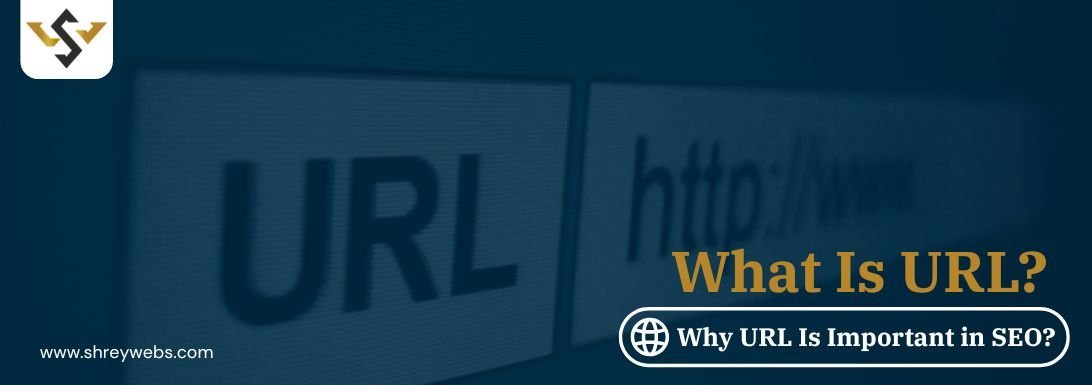Nowadays, whenever you click a link, you likely do not pause to consider the address that it points to. Yet that humble address the URL shapes how both people and search engines move around the web. It is essential to URL SEO, which helps websites increase click-through rates and visibility. You may increase your site’s visibility and make it easier for actual people to visit it by knowing what is URL, how it functions, and how importance of URL structure in SEO.
In the next few paragraphs, we’ll break down what a URL looks like, the different kinds you might see, and the little tweaks that can boost your site’s search rankings and user experience.
What Is URL? A Simple Explanation
Understanding the Basics
A URL, or Uniform Resource Locator, is the address you type into your browser to reach a page. Put another way, it tells the web where to find a specific spot, like a street address for a house.
So, when someone asks, What is a URL site? They really mean the exact line that leads to a single page, such as https://www.example.com/about. This line directs both users and search engines to the correct location. In fact, having a clean and optimized SEO URL helps both usability and crawlability, which directly influences search rankings.
Many confuse what is URL with what is a website domain. A domain, like example.com, is the name people remember, while a URL adds the path, the protocol, and even the file at the end. That’s why understanding the role of the URL in SEO is important it ensures each page on your website is accessible, indexable, and optimized for visibility.
How URL Works in a Web Environment
To understand how URL works, think of it as a map. When you type one into your browser, here’s what happens:
- Your browser asks a server for that address.
- The server finds the webpage you want.
- The server swiftly returns the desired webpage to your browser.
You don’t see this dance, yet it keeps the web moving. And if you’re wondering, are SEO friendly URLs important? the answer is yes. They play a crucial role in helping search engines and users understand the content of your page quickly and effectively.
Breaking Down the URL Structure
Key Components of a URL
A properly formed URL structure helps both users and search engines understand what a page is about. A basic URL looks like this:
https://www.example.com/products/seo-tools.
- Protocol: https:// tells the browser to use a secure line.
- Domain Name: www.example.com marks the website’s home base.
- Path: /products/seo-tools points to a folder and a page inside.
Because clear parts give quick context, search engines always favor them. The relationship between URLs and SEO lies in how clearly and efficiently a URL conveys the topic of a page.
If you are still not particularly clear on what is a website’s URL means, a reminder would be; it is the address that leads to a specific page of a site, inputting the protocol, domain, and path in a readable and indexable format.
Clean vs. Complex URLs
SEO-friendly URLs are easy to read and explain the content right away. Here’s what they usually have:
- They are short and descriptive.
- They use hyphens, not underscores.
- They include one or two relevant keywords.
Bad URL: https://example.com/page?id=123abc
Good URL: https://example.com/seo-tips
Regular visitors, as well as search engines, ease and trust in clean URLs that make sense, and sensible URLs for SEO. By providing search engines clear and quick identification to the content, well-structured URLs improves indexability and user experience.
Explore our Local SEO Services to improve your website’s structure and rankings.
Types of URLs Explained
Major Types Used in Websites
Web developers use a few main types of URLs to link pages together:
- Absolute URL: The full web address, like https://domain.com/page.
- Relative URL: A shorter link that works only within the same site, such as /about-us.
- Canonical URL: Marks the preferred version of a page so search engines know which one to show.
- Shortened URL: A tiny link created with a service so it fits better in social posts or text messages.
The smart and efficient usage of each URL type can be helpful in making web development and SEO effortless. Learning the url importance seo helps plan and develop URL structures ensuring each URL assists search engines, as well as the users.
Choosing the Right Type for SEO
In SEO work, absolute and canonical URLs are usually safest because they let search engines crawl on autopilot and avoid duplicate content confusion.
Why URLs Matter: Importance of URL in SEO
Google Ranking and URLs
Search engines use URLs as a ranking factor. A clear, keyword-rich URL in SEO helps Google and other search engines determine a page’s relevance to a query. It’s also one of the first things users see in search results.
For example, if someone types best SEO tips, a link like
https://example.com/best-seo-tips
stands out and may rank higher than
https://example.com/page?id=9483.
That’s why the importance of URL in SEO cannot be overstated—it contributes to indexing, ranking, and click-through rate.
Best Practices for SEO-Friendly URLs
Here’s how to create an SEO-friendly URL:
- Include your main keyword so both people and crawlers know what the page is about.
- Cut out extra, fluff words that do not add meaning.
- Use hyphens, not underscores or spaces, to separate words.
- Keep the whole string short, logical, and in the same order a reader expects.
- Last, make the URL easy to read, pronounce, and remember.
Check out this On-Page SEO Audit Guide for more technical optimization strategies.
Common URL Mistakes to Avoid
What Hurts SEO Performance?
Even small problems can tank a URI. Steer clear of these blunders:
- Humans cannot understand long strings of numbers and symbols.
- Duplicate URLs that show the same content and skip the canonical tags.
- The URL appears spammy when it is overstuffed with keywords.
- Dynamic URLs change with each visit, leading to confusion for both bots and users.
These mistakes not only annoy search engines but also keep users from clicking.
How to Correct and Optimize
- Use permanent 301 redirects to pass link values from old URLs to new ones.
- Please add canonical tags to guide search engines on which version to index.
- Build a simple sitemap listing every URL for easy indexing.
- Fix broken paths in older links and update them everywhere on your site.
Get expert help from the Best SEO Company in India to fix and manage your website URLs.
Conclusion
To sum it up, what is URL is more than just a web address, it’s a fundamental part of your website’s SEO strategy. From understanding URL structure to using SEO-friendly URL formats, every small detail matters.
Whether you’re a beginner or an experienced marketer, knowing how URL works and recognizing the importance of URLs in SEO can give you a strong edge in optimizing your website for both users and search engines.
Frequently Asked Questions (FAQs)
A URL (Uniform Resource Locator) is the web address of a certain webpage. In SEO, a URL is helpful as it aids the search engines, as well as the users, to understand the content of a specific page when they see the webpage is structured in a certain way and has relevant keywords.
SEO-friendly URLs are of key importance, as they are simple to understand, descriptive in their content, and contain the proper keywords. SEO-friendly URLs help build a website’s indexing, user trust, and click-through rate, all of which are beneficial for a web page’s ranking.
A website’s URL is the full address of a specific page, which is accessed with the description link of it, which contains the http/https, domain name, and the page path. A website’s URL is as follows: https://www.example.com/blog/url-optimization
An obvious and orderly URL structure greatly enhances enrollment and indexing and directly affects how a search engine views and assesses the page’s importance and hierarchy.
Yes, they do. Well-optimized URLs that contain keywords and are clear aid a search engine in ranking the content and improving the user experience.
“URL SEO” is the process of improving page URLs for search engines by shortening them, making them relevant, and making them keyword-centered.
It’s fundamental for technical and on-page SEO strategies.
There is definitely a connection between URLs and SEO. Organizational URLs and structured, clean URLs enhance a site’s ranking, aid search engine bots in analyzing the content, and increase the likelihood of increased organic traffic.

